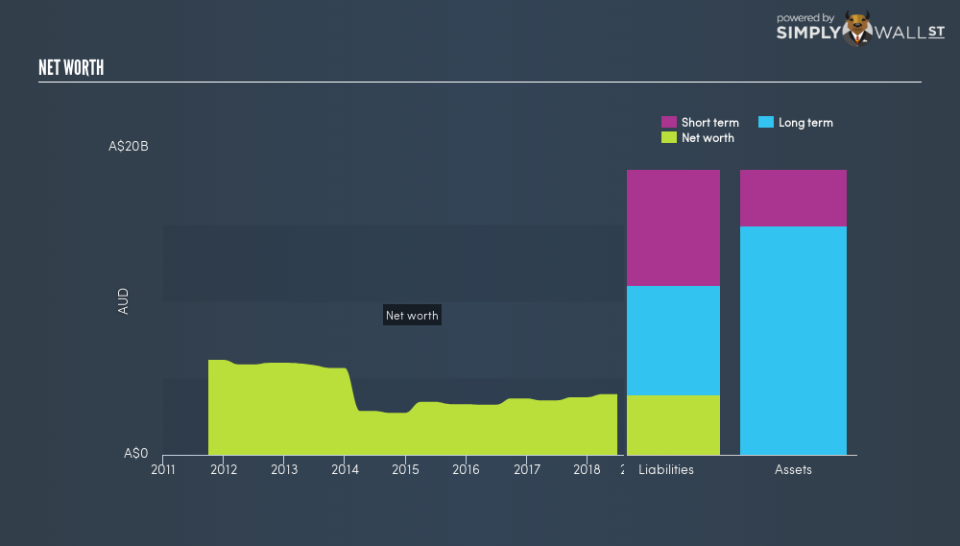Is Qantas Airways Limited (ASX:QAN) A Cash Cow?

If you are currently a shareholder in Qantas Airways Limited (ASX:QAN), or considering investing in the stock, you need to examine how the business generates cash, and how it is reinvested. After investment, what’s left over is what belongs to you, the investor. This also determines how much the stock is worth. I’ve analysed below, the health and outlook of QAN’s cash flow, which will help you understand the stock from a cash standpoint. Cash is an important concept to grasp as an investor, as it directly impacts the value of your shares and the future growth potential of your portfolio.
Check out our latest analysis for Qantas Airways
Is Qantas Airways generating enough cash?
Free cash flow (FCF) is the amount of cash Qantas Airways has left after it pays off its expenses, including its net capital expenditures, which is what the company needs to spend each year to maintain or grow its business operations.
The two ways to assess whether Qantas Airways’s FCF is sufficient, is to compare the FCF yield to the market index yield, as well as determine whether the top-line operating cash flows will continue to grow.
Free Cash Flow = Operating Cash Flows – Net Capital Expenditure
Free Cash Flow Yield = Free Cash Flow / Enterprise Value
where Enterprise Value = Market Capitalisation + Net Debt
Qantas Airways’s yield of 2.67% indicates its sub-standard capacity to generate cash, compared to the stock market index as a whole, accounting for the size differential. This means investors are taking on more concentrated risk on Qantas Airways but are not being adequately rewarded for doing so.
What’s the cash flow outlook for Qantas Airways?
Another important consideration is whether this return is likely to be maintained over the next couple of years. We can gauge this by looking at QAN’s expected operating cash flows. Over the next three years, expected growth for QAN’s operating cash is negative, with operating cash flows expected to decline from its current level of AU$3.41b. This is unfavourable to its future outlook, especially if capital expenditure heads the opposite direction. However, breaking down growth into a year on year basis, QAN ‘s negative growth rate improves each year, from -15.6% in the upcoming year, to 0.1% by the end of the third year.
Next Steps:
Low free cash flow yield means you are not currently well-compensated for the risk you’re taking on by holding onto Qantas Airways relative to a well-diversified market index. Moreover, the stock’s negative growth prospects in terms of cash flow, seems worrisome. Keep in mind that cash is only one aspect of investment analysis and there are other important fundamentals to assess. I suggest you continue to research Qantas Airways to get a more holistic view of the company by looking at:
Valuation: What is QAN worth today? Is the stock undervalued, even when its growth outlook is factored into its intrinsic value? The intrinsic value infographic in our free research report helps visualize whether QAN is currently mispriced by the market.
Management Team: An experienced management team on the helm increases our confidence in the business – take a look at who sits on Qantas Airways’s board and the CEO’s back ground.
Other High-Performing Stocks: If you believe you should cushion your portfolio with something less risky, scroll through our free list of these great stocks here.
To help readers see past the short term volatility of the financial market, we aim to bring you a long-term focused research analysis purely driven by fundamental data. Note that our analysis does not factor in the latest price-sensitive company announcements.
The author is an independent contributor and at the time of publication had no position in the stocks mentioned. For errors that warrant correction please contact the editor at editorial-team@simplywallst.com.

 Yahoo Finance
Yahoo Finance 
